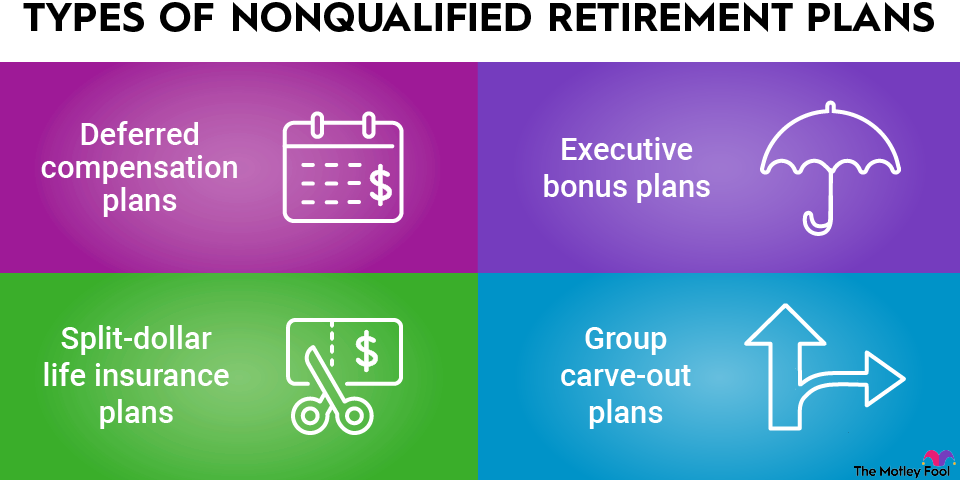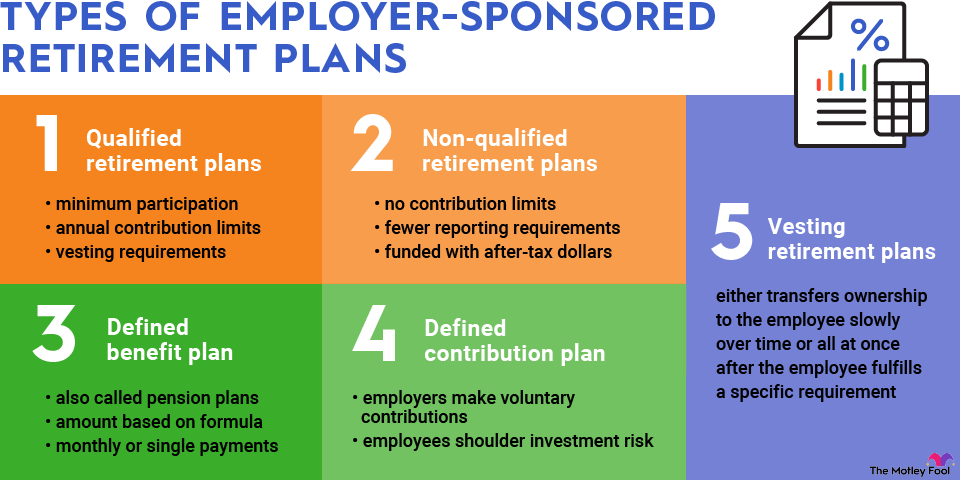Defined benefit plan
A defined benefit plan is an employer-sponsored retirement plan that guarantees an employee will receive a specified benefit in retirement. Also called pension plans, defined benefit plans require employers to assume the investment risk and responsibility for funding the plan.
The amount of money an employee receives is determined by a formula that's usually based on years of service, salary history, and age. Benefits can take the form of fixed monthly annuity payments, or employees may receive a single lump sum payment. If an employee dies, his or her surviving spouse or beneficiary may be entitled to receive benefits from the plan.
Defined contribution plan
Defined contribution plans are more common than defined benefit plans, especially among private-sector workers. Under most of these plans, including 401(k)s, 403(b)s, and SIMPLE IRAs, employees are provided with the opportunity to defer a portion of their salary with pre-tax dollars but aren’t required to do so. Many plans also have a Roth option that allow employees to save post-tax money.
Employers can make voluntary contributions for a 401(k) or a 403(b). In the case of a SIMPLE IRA, employers must make mandatory contributions based on a preset formula. A SEP IRA is another type of defined contribution plan, but only employers can contribute to it.
With defined contribution plans, employees shoulder the investment risk and are largely responsible for ensuring their own retirement security. Employees are not guaranteed any minimum retirement income, and account balances fluctuate depending on changes in the value of investments.



